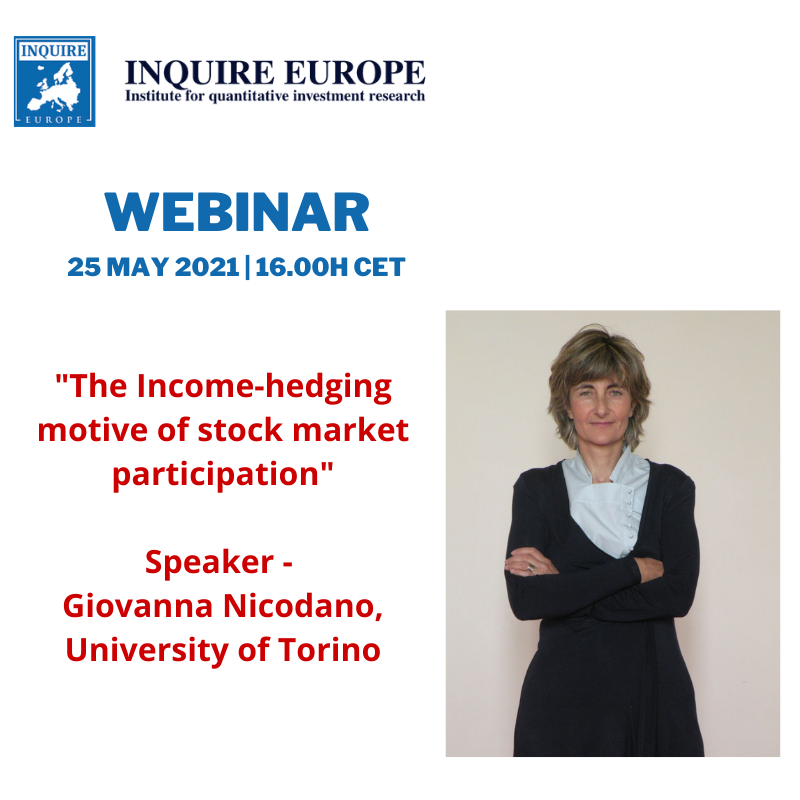Wednesday 2 June 2021
In case you missed it – ‘Income-hedging motives of market participation’
For those who were unable to attend, we compiled the key takeaways of the webinar featuring professor Giovanna Nicodano from the University of Torino.
Nicodano’s research, ‘The Income-hedging motive of stock market participation’ revolves around life-cycle theory, which implies that the correlation between permanent income shocks and stock returns is a key factor in equity market participation. COVID-19 has caused income shocks for millions of people, both temporary and permanent, Nicodano adds.
“The idea of life cycle theory is that when we manage our portfolios of financial assets, we should also think of other assets that we have endowed. We should reduce our exposure to stocks if stock returns are positively correlated to labor shocks. In that case, stock returns amplify labor income shocks, permanent shocks in particular. When there is a negative correlation between stock returns and labor shocks, we should increase our exposure to stocks.”
So far, academic research on permanent income (PI) shocks has faced measurement challenges, Nicodano explains. However, by using data clusters with variables such as gender, education, and risk aversion, it becomes possible to estimate permanent income shocks for individuals and explain how equity market participation changes for individuals over time.
“Nowadays, participation is explained through behavioral biases, stories that are external to the lifecycle paradigm. With a new approach we show that hedging motives explain observed portfolios in a very robust way, to the extent that we believe that the correlation estimates may be used to improve the design of portfolios and of life-cycle glide-paths.”
Before concluding the webinar, Nicodano showed an example of how the correlation estimates can be applied to equity-age glidepath. She explained how the cluster analysis can be used to allocate and individual fund participant to a cluster of participants that share the same characteristics. By continuing to update the correlation for the individual participants, the portfolios can be revised accordingly over time.
Access the webinar via: https://vimeo.com/554915632

